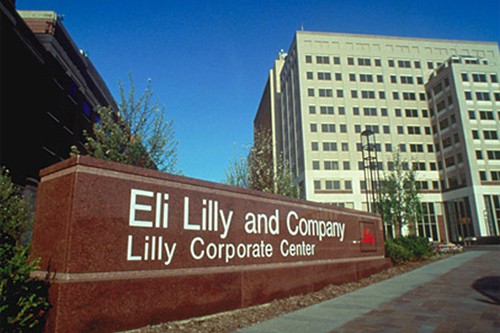
NICE is not backing Lilly’s drug Alimta for use by certain lung cancer patients because of the treatment’s high cost.
In final draft guidance published today, the watchdog says it is not recommending Alimta (pemetrexed) for the maintenance treatment of non-small cell lung cancer (NSCLC), following induction therapy with Alimta and chemotherapy drug cisplatin.
NICE already recommends the drug as a first-line treatment option for certain types of locally advanced or metastatic NSCLC.
Lilly’s blockbuster drug is also approved as a maintenance treatment option for locally advanced or metastatic NSCLC, other than predominantly squamous cell histology if disease has not progressed immediately following platinum-based chemotherapy in combination with Lilly’s other cancer drug Gemzar (gemcitabine), or chemotherapy drugs paclitaxel or Sanofi’s Taxotere (docetaxel).
In 2012, Lilly received an extension on its European licence for Alimta, allowing it to be used as a maintenance therapy after first-line platinum-based chemotherapy, but with a platinum-based chemotherapy agent.
It is this extension NICE is looking at, but said today that it could not recommend this for NHS funding due to its high cost.
Sir Andrew Dillon, chief executive of NICE, said: “The two main goals of maintenance treatment are to prolong the period of remission after first-line chemotherapy and increase the likelihood of being able to receive second-line chemotherapy.
“NICE already recommends pemetrexed as a treatment option for maintenance treatment following a different first line treatment. However, in this case, pemetrexed as maintenance treatment following combination therapy with cisplatin, although effective, the benefits did not justify the costs.
“It is disappointing not to be able to recommend pemetrexed in this draft guidance, but we can only recommend treatments which are both clinically and cost effective.”
The drug costs on average £11,520 per patient, assuming eight cycles of treatment, but NICE found that this corresponded to £82,000 per Quality Adjusted Life Year (QALY) gained. NICE does not usually recommend medicines that have a QALY over £30,000.
Maintenance therapy represents a new approach in treating advanced NSCLC. Traditionally, patients who respond to first-line chemotherapy are monitored until the disease reoccurs and are then treated with a second-line regimen.
But with maintenance therapy, rather than halting further treatment until disease progression, patients who have disease control following first-line therapy are treated immediately with a maintenance regimen.
Drugs offering this kind of treatment have not always been favoured by NICE, however. In June 2011 the Institute rejected Roche’s NSCLC drug Tarceva in a maintenance setting because of uncertainty over how long it is able to extend survival. This came despite the Swiss firm offering a discount on its treatment.
Lung cancer is one of the most common cancers, with around 36,000 people diagnosed every year in England and Wales. Non-small-cell lung cancer is the most common type of lung cancer, accounting for around 80 per cent of all cases.




